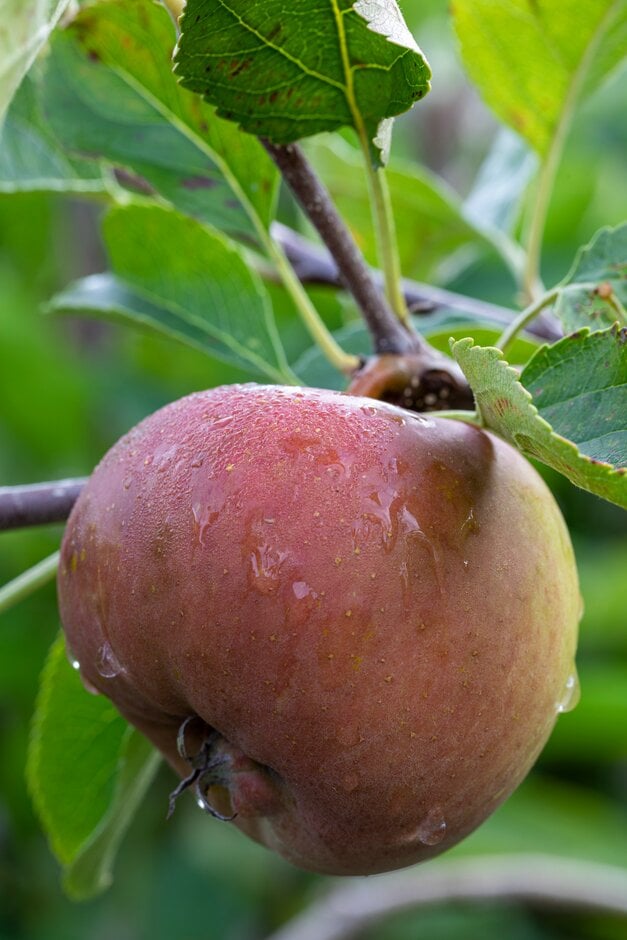Malus domestica Little Pax (D)
apple 'Little Pax'
A late season dessert apple producing crops of sweet, aromatic, bright red apples with yellow markings that store well over the winter; this cultivar is noted for its abundant spring blossom but is not self-fertile so will require a pollinating partner from group 3 to set fruit

Buy this plant
Size
Ultimate height
4–8 metresTime to ultimate height
10–20 yearsUltimate spread
4–8 metresGrowing conditions
Moisture
Moist but well–drained, Well–drainedpH
Acid, Alkaline, NeutralColour & scent
| Stem | Flower | Foliage | Fruit | |
| Spring | Pink White | Green | ||
|---|---|---|---|---|
| Summer | Green | |||
| Autumn | Green | Red Yellow | ||
| Winter |
Position
- Full sun
Aspect
South–facing or West–facing or East–facing
Exposure
Sheltered Hardiness
H6Botanical details
- Family
- Rosaceae
- Native to GB / Ireland
- No
- Foliage
- Deciduous
- Habit
- Bushy
- Genus
Malus are small to medium-sized deciduous trees with showy flowers in spring and ornamental or edible fruit in autumn; some have good autumn foliage colour
- Name status
Trade
- Horticultural Group
- Dessert apples are sweet and juicy and are best eaten fresh and raw
How to grow
Cultivation
Prefers a deep, fertile, moist but well-drained, neutral soil in a sheltered, sunny position. Will not thrive on very acid soils, shallow chalk soils or with shade for more than half the day. May require fruit thinning to improve fruit size and quality. See apple cultivation
Propagation
Propagate by chip budding or grafting onto a clonal rootstock for fruit. The rootstock used will largely determine the vigour of the tree
Suggested planting locations and garden types
- Cottage and informal garden
- Patio and container plants
- Wildlife gardens
- Wall side borders
- Edible fruit
Pruning
Prune according to chosen training method. See apple pruning
Pests
May be susceptible to aphids, including woolly aphid and rosy apple aphid, fruit tree red spider mite, codling moth and other caterpillars
Diseases
May be susceptible to common apple diseases including apple canker, apple scab, powdery mildews, brown rot, honey fungus and blossom wilt
Get involved
The RHS is the UK’s gardening charity, helping people and plants to grow - nurturing a healthier, happier world, one person and one plant at a time.